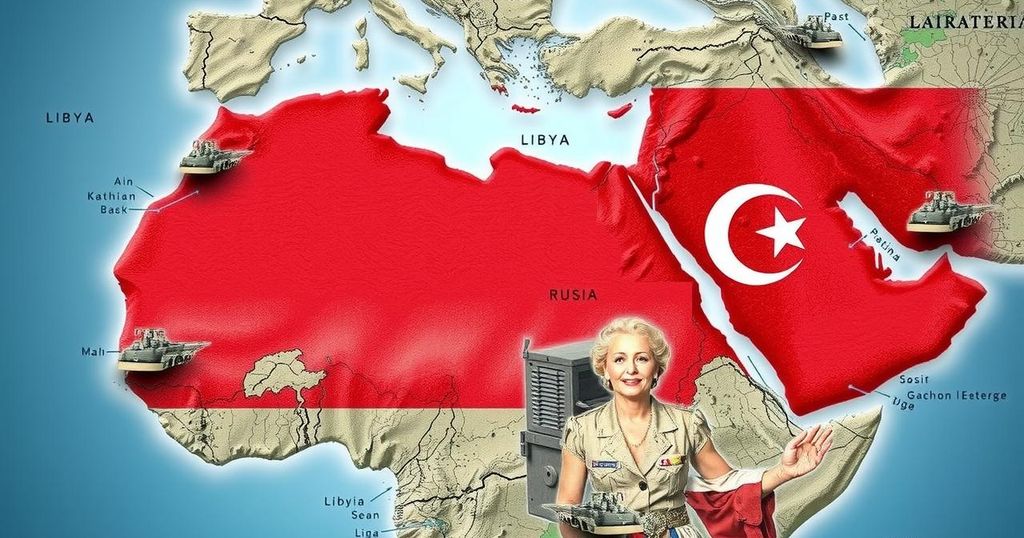Russia Shifts Focus to Libya as Strategic Base Following Syrian Turmoil

In response to the fall of Bashar al-Assad in Syria, Russia is pivoting its strategic military focus to Libya. This transition aims to maintain its influence in Africa as it supports Khalifa Haftar against the UN-backed Government of National Unity. Military resources and personnel are being transferred from Syria to Libya, marking a shift in Russia’s operational strategy amidst geopolitical challenges and the involvement of competing powers.
Following the political upheaval in Syria and the fall of President Bashar al-Assad, Russia is redirecting its military focus towards Libya as a strategic foothold in Africa. Experts note that the Kremlin’s military operations, primarily based in Syria for access to the Mediterranean and Africa, are now jeopardized. This transition comes in light of recent military support to Khalifa Haftar, the field marshal in control of eastern Libya, amid escalating tensions with the UN-recognized Government of National Unity (GNU) in Tripoli, which is backed by Turkey. Analyst Jalel Harchaoui from the RUSI think tank emphasized that Russia’s adjustments in Libya reflect a need to preserve its ongoing missions across Africa, particularly following the deterioration of its position in Syria.
According to reports, Russian military operations in Libya were evident at various sites, including the port of Tobruk, where substantial military equipment was dispatched recently. Intelligence suggests a significant troop presence, with numbers increasing to 1,800 by May 2024. The Wall Street Journal has reported the transfer of advanced Russian air defense systems from Syria to Libya. Harchaoui noted that these developments mark a notable increase in military resources moved into Libya, signaling Russia’s intent to establish a solid operational base.
This transition is not simply about replacing one proxy with another; it signifies a strategic pursuit for continuity within Russia’s broader ambitions in the region. Libya offers Moscow the opportunity to disrupt Western interests and expand its influence within Africa, particularly against NATO’s eastern front. Notably, while the dynamics in Libya create additional challenges due to the involvement of other powers like Turkey, Russia is mindful of maintaining relations with Haftar, who has benefited from Western tacit support. The complexities on the ground will likely test Russia’s operational capabilities compared to its more favorable conditions in Syria, which lacked Western oversight.
The article discusses the geopolitical shift following the de-escalation of Russian influence in Syria due to the falling regime of Bashar al-Assad. It highlights how this shift is compelling Moscow to seek a new strategic ally in Libya, where it has previously exerted influence through mercenaries supporting field marshal Khalifa Haftar. The importance of Libya as a military and strategic hub, especially in context to its proximity to Europe and its political fragmentation, becomes crucial as Russia navigates the evolving landscape that is less conducive than the previously controlled environment of Syria.
In conclusion, as Russia shifts its focus from Syria to Libya to secure its strategic interests in Africa, the complexities of the Libyan political landscape present new challenges. The Kremlin’s increased military presence in Libya aims to establish a counterbalance to Western influence while fostering its existing alliances. Nevertheless, the visible nature of operations in Libya, compared to the clandestine activities in Syria, may hinder Russia’s efforts to exert control and influence as seamlessly as it once did in Syria.
Original Source: www.france24.com







